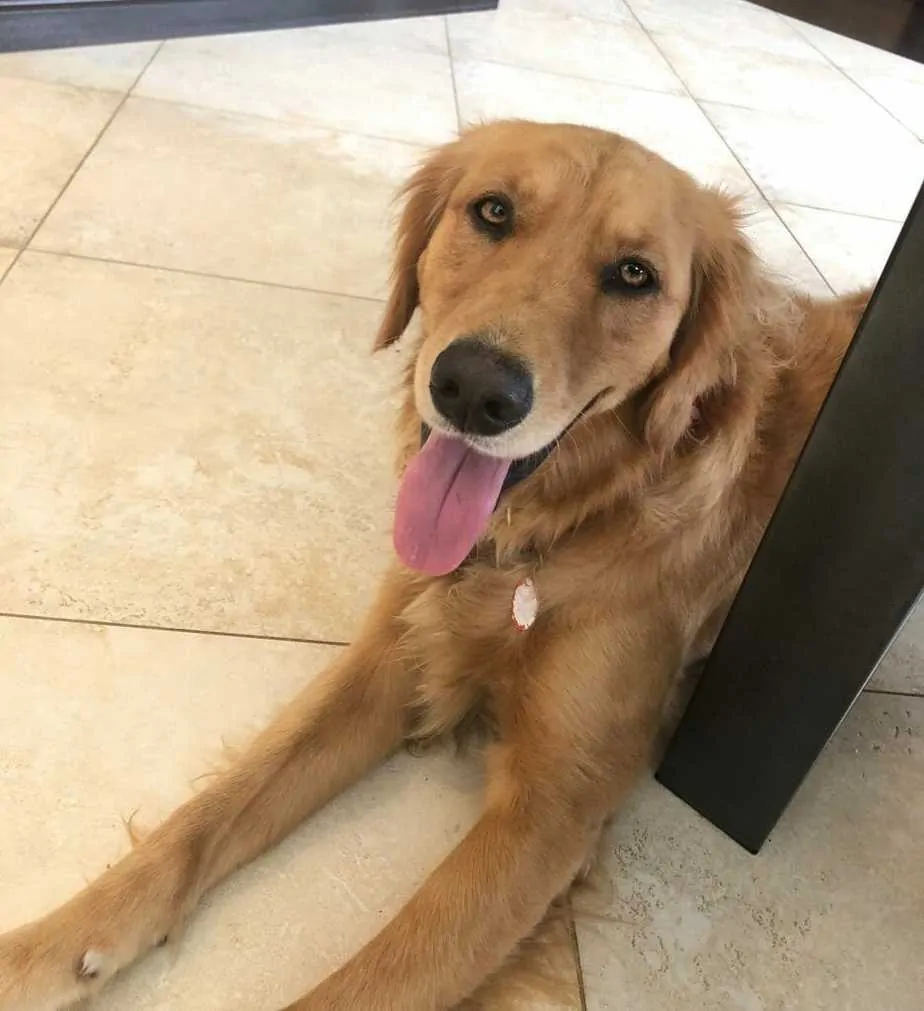We all know that our dogs need to be bathed on occasion, require their hair and nails trimmed, and maybe even need a day of pampering at the groomer’s once in a while. But what about their ears?
Much like we as humans need to clean our ears once in a while, so do our furry friends. But a dog’s external ear canals – which is typically where the issues take place – are longer than those of humans. As such, it’s easier for things to enter the ear canal and stick around, as it’s much more difficult to reach the debris and get it out.
Not only that, but the ear canals in dogs have similar skin and hair that would normally be found on other parts of a dog’s body, such as on the paws, head, back, and legs. Anything that can irritate these parts of your dog’s body can therefore irritate the lining of your dog’s ear canals.
The question is, how do you even clean your dog’s ears? They tend to be awkward to handle, as they’re deep, dark, small, and somewhat hidden underneath all that hair.
But nonetheless, they need to be cleaned. But how? And why?
How can you tell if your dog’s ears are bothering her? There are some telltale signs that something in her ears may be bothering her.
Contents
Why is it Necessary to Clean Your Dog’s Ears?
As you can imagine, all sorts of things can make their way into your dog’s ears. Just think about how they play and roll around in dirt and in the grass. And whatever makes its way into your dog’s ears can wreak havoc and cause all sorts of problems. Things such as …
- Dirt
- Seeds
- Parasites
- Bacteria
- Grass bits
- Pollen
… can easily enter your dog’s ears and cause health issues that you’ll have to deal with later on.
Not only that, but after a bath or swim, your dog’s ears will be wet, just like other parts of her body. But unlike other areas of her body, her ears will likely take much longer to dry, especially is she’s a floppy-eared breed.
In this case, moisture can be a breeding ground for all sorts of bacteria, which can cause infections. That’s why their ears need some proper ventilation in order for them to dry thoroughly and eliminate any lingering moisture that can lead to problems.
So, what exactly can happen if your dog’s ears aren’t cleaned properly? What can happen if all that dirt and bacteria are left to fester?
Bacterial infections – The majority of bacterial infections that negatively impact a dog’s ear canals – as well as any other areas of skin – stem from the staph strain. If your dog is diagnosed with a staph infection, your vet will likely prescribe antibiotics.
That said, there are also non-antibiotic treatments – such as special types of shampoos – that may be administered on a regular basis if your dog seems to be prone to such infections.
There are a number of issues that arise if your dog’s ears are left with debris, allergens, or excess moisture for a long period of time. That’s why it’s so important to thoroughly and effectively clean your dog’s ears from time to time.
Yeast infections – Usually, yeast infections in a dog’s ears stem from an allergic reaction. If your dog has an allergy to a substance, her skin will be more prone to producing excess oil on her skin, including in her ears. With this type of environment, yeast can grow exponentially.
To treat a yeast infection in your dog, your vet may suggest antifungal medications, which can be administered either orally or as a topical.
Mites – Mites are miniscule insects that can easily make their way into your dog’s ears and cause a lot of discomfort. If it’s determined that your dog has mites in her ears, an anti-parasitic medication can be applied topically to the ear canal or as an oral medication. Your vet may also suggest using ear cleansers to supplement the treatment.
Blockage – For the most part, issues with your dog’s ears will stem from debris, dirt, mites, bacteria, and tiny allergens that can cause irritation and infection. But there are rare times when dogs may suffer from blocked ear canals as a result of a foreign object becoming stuck in there somehow.
In this case, your dog will need to be examined by your vet to verify exactly what is in there, how large or small it is, and how far down the ear canal it is. The vet may be able to remove it manually. Otherwise, surgery may sometimes be warranted in cases where the object cannot be accessed from outside the canal.
Tips to Cleaning Your Dog’s Ears
Ear cleaning should be part of your dog’s overall bathing and grooming protocol. If you take your dog to a groomer, most likely she is getting her ears cleaned there. So, you should adopt the same principles as the pros when it comes to keeping your dog’s ears clean at home.
Here are some tips to cleaning your dog’s ears thoroughly, effectively, and safely.
- Get a vet-approved ear cleaning solution and clean cotton balls.
- Loosely wrap a towel around your dog’s neck to prevent any of the ear cleaner from getting all over her body. Otherwise, apply the solution while she’s in the tub.
- Hold the ear flap upright and carefully add the solution to the ear canal, allowing it to go all the way down the canal.
- Gently massage the base of your dog’s ear to make sure the solution covers the entire ear canal and is able to break down any debris in there.
- Wipe the outer part of the ear to remove any remnants of the ear cleaning solution with the cotton ball, going as far down the canal as you safely can.
- Continue wiping with the cotton balls until they no longer come out dirty.
- Don’t use Q-tips, as this can cause damage to your dog’s ears and may even push any debris further down the canal.
- Allow your dog to shake (which she’ll certainly want to do after having liquid poured into her ears).
- Dog ear cleaners will dry on their own inside the ears, so don’t worry if you feel you’ve left a little bit inside the canal.
- If your dog currently has an ear infection, apply any medication cleaning the ears.
Great care should be taken when cleaning your dog’s ears. Be sure to get yourself a vet-approved ear cleaning solution and use clean tools to safely cleaned the ear canals.
How Frequently Should Your Dog’s Ears Be Cleaned?
How often your dog’s ears should be cleaned will depend on your specific dog. For instance, if she has floppy ears, they may need to be cleaned more often. Further, if she is prone to infections, a more frequent ear cleaning schedule may be warranted.
For some dogs, a weekly schedule might be needed. For others, you may be able to get away with cleaning her ears once a month. Ask your vet for instructions on how often your particular dog’s ears should be cleaned.
But of course, if she’s been rolling around in the dirt or grass or was recently swimming or bathing, cleaning and drying the ears right afterward would make sense. And if you’re tending to an infection, your dog’s ears might have to be cleaned daily until the infection goes away.
Signs That Your Dog’s Ears Are Bothering Her
If your dog is feeling pain or discomfort in her ears, you’ll know. Here are some of the signs that she’ll display that could be a sign of an issue with her ears:
- Head shaking
- Head tilting
- Relentless scratching
- Loss of balance
- Foul smell coming from the ears
- Noticeable redness in the ear
- Swelling of the ear
- Discharge
- Unusual eye movements
If you notice any of these signs and symptoms, a trip to your vet is warranted.
What Are Some Other Issues That Can Affect Your Dog’s Ears?
Of course, issues with your dog’s ears can arise from other sources besides things getting in there and allowing to sit and fester for long periods.
Airborne allergies – Common issues with dog’s ears stem from airborne allergies, which often occur on a seasonal basis, just like with humans. During allergy season, dogs are more susceptible to ear infections from things such as pollen or grass.
The good news is that there are various products available on the market these days that you can give to your dog to counter the effects of airborne allergies on your dog’s ears.
However, bathing your dog regularly during this time frame can also be an effective way to minimize the reaction your dog has. Any pollen or grass that may be causing the irritation can and should be removed to minimize any negative effects.
If the situation is severe, there are antihistamines that your vet can prescribe.
Food allergies – Believe it or not, but dogs can express allergies to food in the form of an ear infection. Certain foods can cause a reaction in your dog, which often displays itself as an infection in the ear canal of your dog.
Common food allergies in dogs tend to be with chicken, beef, eggs, and dairy. If your dog is sensitive to certain foods, her diet will have to be modified to avoid any complications that may arise from consuming such foods.
Final Thoughts
Dogs are naturally active and curious creatures, and they’re going to want to roll around and frolic as they play. But they may inadvertently allow debris and allergens into their ears while doing so. The bottom line is that you do your best to make sure you keep your dog’s ears clear of any debris and visit your vet’s office if you notice something’s off with your pooch.




